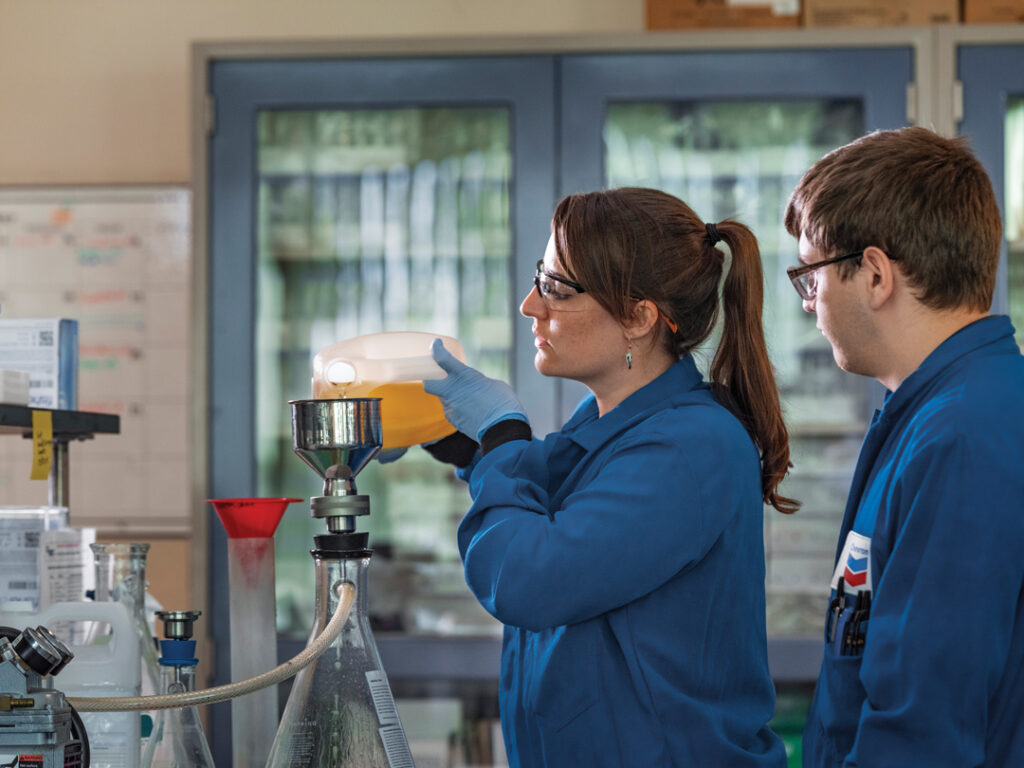A Closer Look: Bill Stowe
New CEO and general manager of Des Moines Water Works

For more than a decade, residents of Greater Des Moines looked to Bill Stowe, assistant manager for the city’s public works and engineering department, for advice on driving in the city during winter storms. Stowe’s comforting TV personna, combined with his long hair, made him an unusual local hero, with a Facebook fan page and a T-shirt designed by Raygun that showed his face and snowflakes and read “Let it Stowe.” On Sept. 24, he took the helm of Des Moines Water Works, which provides drinking water to half a million people in the Des Moines area.
What are the key issues that you anticipate addressing at the Water Works – both short-term and long-term?
Des Moines Water Works is an essential element in our success as a community, delivering high-quality drinking water, reliably, and at a great price. My focus will be on continuing to pursue a business model for regional revenue growth, while maintaining a water production and distribution system vital to our life in metropolitan Des Moines.
How will climate change affect our water supply?
This summer’s drought was a vivid reminder of the importance of reliable drinking water. Swings in weather, between cold, wet years and hot, dry years will challenge the infrastructure that’s needed to deliver drinking water on demand to our customers. Des Moines Water Works has more than 100 years of providing this essential service in a manner that each of us can trust today and in the foreseeable future, no matter the changes in our climate.
As public works director, you had a high public profile. Do you expect to continue that public presence at the water utility? How do you feel about that?
We must improve our appreciation and increase the awareness and importance of water as an essential ingredient in our lives. As a person who enjoys his privacy, my “high public profile” is as an advocate for the organization I lead, not a matter of my personal enjoyment.
If you were to name three people who had a dramatic effect on your life, who would they be and why?
Thomas Jefferson: a scientist, statesman and civil libertarian. He lead with brilliance and bravery while respecting our connectedness to the land and our duties to our larger community.
Nicolaus Copernicus: a Polish astronomer who dared to challenge the unchallengeable views of the earth (and man) as the center of the universe. His courage and insight changed science and our view of our role in God’s universe forever.
My parents: rural Midwesterners whose lives centered on their family. By example, they chose to teach their children about the timeless values of hard work, strength through adversity, service to the community, and, humility (all too often probably lost on me).
Do you have a professional mantra or ethic?
There is G-dliness in all things. (Some in orthodox religious communities believe it is disrespectful to capture in written form the Almighty. While I’m not that orthodox, I do value the concept – some things should be left to reverent imagination.” )
Can you remember a mistake you made professionally that made you a better leader?
Many. … If our mistakes aren’t our best source of improvement, that in and of itself is a mistake that’s committed without any benefit. At an earlier time in my career, I believed that being liked by the employees I depended on was crucial to the success of our business objectives. I’ve come to learn that it’s more effective to the organization to be respected, rather than liked personally. Tough decisions often generate few friends.
What excites you most about your new job?
Des Moines Water Works is an extraordinary technical organization—taking deteriorated source water and making it into exceptional drinking water, even in the most adverse floods and droughts. Des Moines was rated number 1 by Forbes.com for the city with the cleanest drinking water in the United States. Having the opportunity to lead this organization to greater regional success is a privilege. …
What do you fear most?
Lethargy. Organizations that can’t make decisions, or worse yet, think that they don’t have to constantly learn and improve, walk off a cliff. Having worked in the steel and coal industries, I’ve seen entire communities fail because organizations were unwilling to do good things better.









